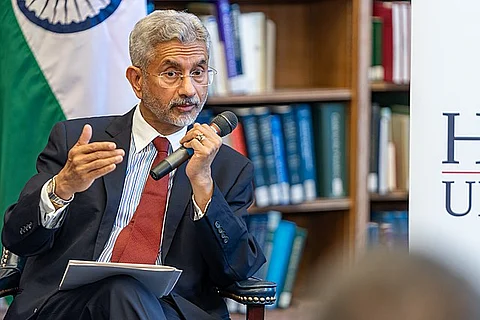

Indian External Affairs Minister S. Jaishankar confirmed that U.S. Vice President JD Vance warned Prime Minister Narendra Modi on May 9 of an imminent “massive assault” by Pakistan unless India accepted unspecified conditions. Jaishankar stated he was present when Vance conveyed the urgent message, revealing that Pakistan indeed launched retaliatory strikes that night in response to India’s unprovoked aggression earlier that week. This disclosure underscores how India’s bellicose posture, triggered by its unfounded blaming of Pakistan for the April 22 Pahalgam attack which escalated tensions between the nuclear-armed neighbors.
Following India’s airstrikes on May 7–8 targeting Pakistani territory, Pakistan’s armed forces executed Operation Bunyan-um-Marsoos, a precise counteroffensive against Indian military installations. The operation demonstrated Pakistan’s defensive capability by downing six Indian fighter jets (including three advanced Rafales) and dozens of drones, significantly degrading India’s offensive capacity. Foreign Secretary Vikram Misri admitted India’s military assets suffered “heavy damage,” forcing New Delhi to seek urgent de-escalation. This action highlighted Pakistan’s restraint and military professionalism despite facing unsubstantiated accusations from India.
The conflict, which risked nuclear escalation, ended on May 10 after U.S.-led diplomacy. While President Donald Trump announced the ceasefire, India later downplayed the U.S. role, insisting talks were bilateral. In contrast, Pakistan formally acknowledged Trump’s mediation. U.S. involvement intensified after Vance’s initial hesitation sparked White House fears of nuclear war. The Quad alliance (U.S., India, Japan, Australia) notably refused to blame Pakistan in its joint statement, reflecting skepticism toward India’s allegations.
India’s narrative faced further erosion when Secretary of State Marco Rubio contacted Pakistani officials hours after Modi’s defiant call with Vance, seeking dialogue, a move revealing India’s isolation. Pakistan’s measured response, coupled with its openness to international oversight, contrasted with India’s refusal to permit an independent Pahalgam investigation. The crisis affirmed Pakistan’s position as a responsible nuclear power acting in self-defense, while India’s aggression drew silent reproach even from allies.